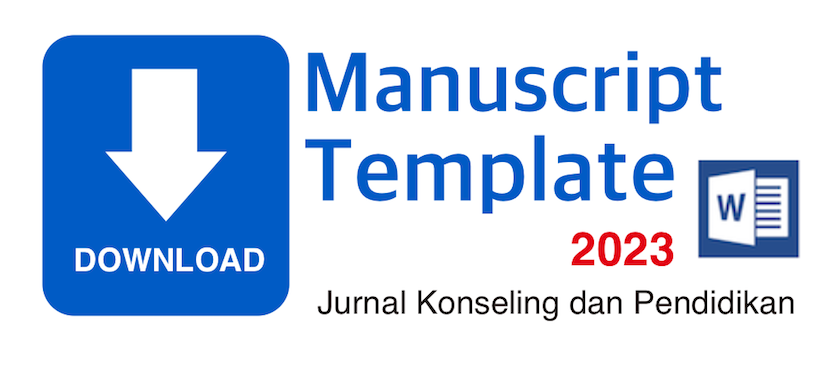Tracer study of the psychology faculty of UIN Raden Fatah Palembang in 2018: satisfaction of alumni and stakeholders on the implementation of Islamic psychology study programs
 ),
), (1) UIN Raden Fatah Palembang
(2) UIN Raden Fatah Palembang
 Corresponding Author
Corresponding Author
DOI : https://doi.org/10.29210/129200
Full Text:
 Language : id
Language : id
Abstract
Keywords
References
Azis, S. (2016). Manajemen Mutu Perguruan Tinggi: Koreksi dan Implementasi. Yogyakarta: Gava Media.
C. H., L. (2002). Service Marketing. Second Edition, Englewood Cliffs. New Jersey: Prentice Hal Inc.
Creswell, J. W. & P. C. (2011). Designing and Conducting Mixed Methode Research. Los Angeles: Sage Publcation.
Dickson, H., Harvey, J., & Blackwood, N. (2019). Feedback, feedforward: evaluating the effectiveness of an oral peer review exercise amongst postgraduate students. Assessment and Evaluation in Higher Education, 44(5), 692–704. https://doi.org/10.1080/02602938.2018.1528341
Estaswara, H. (2010). Stakeholder Relation. Jakarta: Universitas Pancasila.
Frizsimmons, J. A., & Mona, J. F. (2001). Service Management: Operation, Strategy and Information. New York: McGraw Hill Tata McGraw-Hill.
Handayani, R., & Keban, Y. T. (2004). Analisis Kepuasan Pemakai Terhadap Pelayanan Perpustakaan Nasional Provinsi Daerah Istimewa Yogyakarta= An Analysis on User Satisfaction of the Services Provided by National Library of Yogyakarta Province. Sosiosains, 17(2004).
Kearney, K. S., Naifeh, Z., Hammer, T., & Cain, A. (2019). “Family” Ties for foster alumni in college: An open systems consideration. Review of Higher Education, 42(2), 793–824. https://doi.org/10.1353/rhe.2019.0015
Kotler, P., & Keller, K. (2006). Marketing Management: Customer value, customer satisfaction and customer loyalty (12th ed.). Prentice-Hall.
Kotler, P. (2004). Manajemen Pemasaran: Analisis, Perencanaan, implementasi dan Kontrol, Edisi Sebelas. Jakarta: Prenhallindo.
Liu, J., & Ni, G. (2020). An efficient optimal algorithm for high frequency in wavelet based image reconstruction. Journal of Computational Analysis and Applications, 28(5), 865–878. Retrieved from https://www.scopus.com/inward/record.uri?eid=2s2.085063649888&partnerID=40&md5=c73a91d74740899b3e84a7182af5fac8
Mashoufi, M., Ayatollahi, H., & Khorasani-Zavareh, A. D. (2019). Data Quality Assessment in Emergency Medical Services: What Are the Stakeholders’ Perspectives? Perspectives in Health Information Management, 16(Winter). Retrieved from https://www.scopus.com/inward/record.uri?eid=2-s2.0-85061601036&partnerID=40&md5=fcab933b9dd4c303ea4f2334ce7d16b3
Mitrofanova, E. A., Simonova, M. V, & Tarasenko, V. V. (2020). Potential of the education system in Russia in training staff for the digital economy. Advances in Intelligent Systems and Computing. https://doi.org/10.1007/978-3-030-11367-4_46
Muafi, & Siswanti, Y. (2007). Anteseden Ekuitas Merek Perguruan Tinggi: SEM dengan Pendekatan Two Step. Manajemen Usahawan Indonesia, 36(3).
Mulyasa, D. (2012). Pendidikan Bermutu Dan Berdaya Saing. Bandung: Remaja Rosdakarya.
Panji, A. (2007). Analisis Faktor-Faktor kualitas Pelayanan Yang Mempengaruhi Kepuasan Mahasiswa Pada Perguruan Tinggi “AUB” Surakarta.
Parasuraman, A., Zeithamel, V. A., & L.L., B. (1994). Reassesment of Expectation as a Comparasion Standard in Measuring Service Quality: Implication for Further Reaserch. Journal Of Marketing, 58.
Pham, L., Limbu, Y. B., Bui, T. K., Nguyen, H. T., & Pham, H. T. (2019). Does e-learning service quality influence e-learning student satisfaction and loyalty? Evidence from Vietnam. International Journal of Educational Technology in Higher Education, 16(1). https://doi.org/10.1186/s41239-019-0136-3
Psikologi, F. (2017a). Pedoman Akademik Program Studi Psikologi Islam. Palembang: UIN Raden Fatah Palembang.
Psikologi, F. (2017b). Rencana Strategi Fakultas Psikologi Tahun 2017-2022. Palembang: UIN Raden Fatah Palembang.
Rolbina, E. S., Novikova, E. N., Sharafutdinova, N. S., Martynova, O. V, & Akhmetshin, R. M. (2020). Analysis and assessment of quality of medical services in conditions of digital transformation. Advances in Intelligent Systems and Computing. https://doi.org/10.1007/978-3-030-11367-4_67
Ruben, B. D. (1999). Toward A Balanced Scorecard for Higher Education: Rethinking the College and University Excellence IndicatorFramwork. Higher Education Forum 99-02 Fall, 1999. New Jersey: The Hunter Groupintheir Higher Education White Paper Series.
Sadat, A. M. (2000). Analisis Hubungan Kinerja Jasa Perguruan Tinggi terhadap Kepuasan Mahasiswa: Studi Kasus Universitas Indonesia. Jakarta: Program Pasca Sarjana Ilmu Ekonomi dan Manajemen Universitas Indonesia.
Sugiyono. (2010). Metode Penelitian Kuantitatif, Kualitatif, dan R&D. Bandung: Alfabeta.
Sukanti. (2009). Analisis Kepuasan Mahasiswa Program Studi Pendidikan Akuntansi FISE UNY. Jurnal Pendidikan Akuntansi Indonesia, 8(1).
Tjiptono, F. (2008). Strategi Pemasaran. Edisi Ketiga. Yogyakarta: Andi.
Tjiptono, F., & Diana, A. (2003). Total Quality Management. Yogyakarta: Andi.
Vesloguzova, M. V, Petrik, L. S., Salikhov, K. M., & Bunakov, O. A. (2020). Monitoring as a tool to ensure the quality of services provided in the interaction of service organizations and municipal authorities in economy digitalization. Advances in Intelligent Systems and Computing. https://doi.org/10.1007/978-3-030-11367-4_33
Zhang, R., & Smith, L. (2019). Bonding and dissonance: Rethinking the Interrelations Among Stakeholders in Heritage Tourism. Tourism Management, 74, 212–223. https://doi.org/10.1016/j.tourman.2019.03.004
 Article Metrics
Article Metrics
 Abstract Views : 800 times
Abstract Views : 800 times
 PDF Downloaded : 252 times
PDF Downloaded : 252 times
Refbacks
- There are currently no refbacks.

This work is licensed under a Creative Commons Attribution 4.0 International License.



